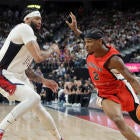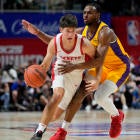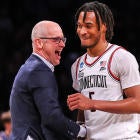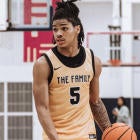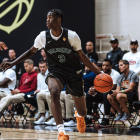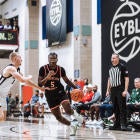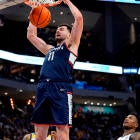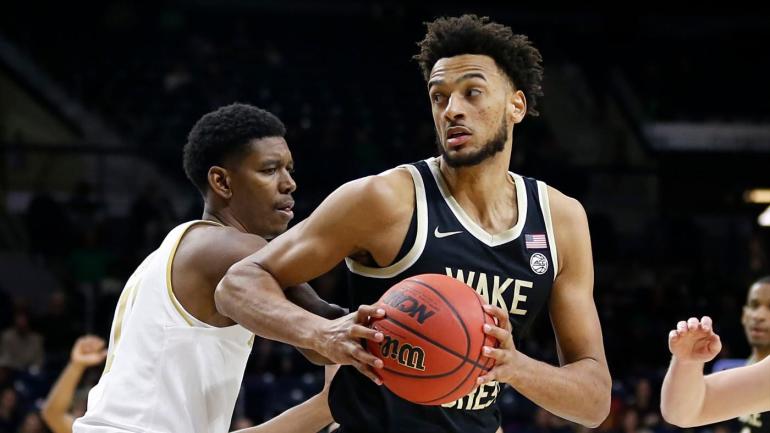
The NCAA Division I Council voted on Wednesday to give all winter student-athletes -- most notably, for our purposes, men's basketball players -- an extra year of eligibility. So let me be the first to congratulate the Kentucky Wildcats because this should be the thing that gets Olivier Sarr eligible for this season.
I'll explain why momentarily. But first, let me back up.
For those unfamiliar, Sarr is a 7-foot, 255-pound forward from France who averaged 13.7 points and 9.0 rebounds in 26.7 minutes per game last season at Wake Forest. After Danny Manning was fired in late April, more than six weeks after the season ended, Sarr, who played three seasons in the ACC, announced his intention to transfer. Unsurprisingly, he enrolled at Kentucky -- with one year of eligibility remaining, but not as a graduate-transfer -- with the idea being that he could fill an obvious hole on an otherwise immensely talented roster. So Sarr applied for a transfer waiver in an attempt to gain immediate eligibility.
The NCAA reportedly granted the waiver weeks ago.
But a little thing known as SEC bylaw 14.1.15 remains an obstacle for Sarr because it states that "a student-athlete who, upon enrollment at the certifying institution, has less than two years of eligibility remaining shall not be eligible for intercollegiate competition at a member institution until the student has fulfilled a residence requirement of one full academic year at the certifying institution."
Which brings me back to Wednesday's news.
Guess who no longer has less than two years of eligibility remaining?
Everybody -- including Oliver Sarr.
So that should do it.
Now, if you want to nitpick, I suppose you could argue that SEC bylaw 14.1.15 explicitly states that "a student-athlete who, upon enrollment at the certifying institution, has less than two years of eligibility remaining shall not be eligible for intercollegiate competition at a member institution until the student has fulfilled a residence requirement of one full academic year at the certifying institution," and that, regardless of what the NCAA voted to do Wednesday, Sarr did indeed have less than two years of eligibility remaining upon his enrollment at Kentucky. Technically, that's true. But keeping him ineligible based on that wording would clearly violate the spirit of the rule now that Sarr no longer has less than two years of eligibility remaining. So, ultimately, I do not believe that will be an issue. Which is why it's reasonable to suggest nobody is going to benefit more this season than John Calipari's Kentucky Wildcats from the NCAA Division I Council voting on Wednesday to grant all winter student-athletes an extra year of eligibility.
The rich, as they say, are about to get richer.
Will Olivier Sarr be great at UK?
I'm honestly not sure.
Remember, Kerry Blackshear was expected to be a monster last season when he enrolled at Florida after playing three full years at Virginia Tech -- but he just wasn't. Two years ago, some thought Reid Travis would be one of the best bigs in the country when he enrolled at Kentucky after playing three full years at Stanford -- but he just wasn't. So the recent history with these things isn't great. But, either way, Sarr should be, on paper at least, Kentucky's best available big. And, even if he's not, he'll add much-needed experience to a roster that's returning only one player from last season's team that finished 25-6.
Bottom line, his addition will be welcomed.
And now the SEC has a good reason to clear him.









